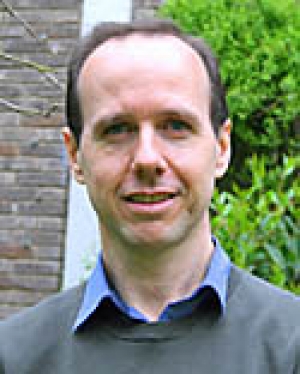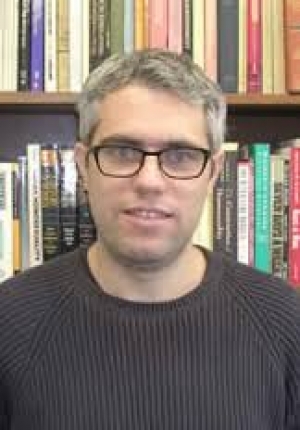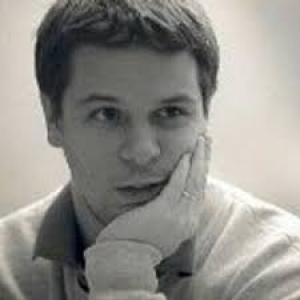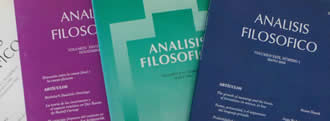Elementos filtrados por fecha: Diciembre 2025
Información académica
Información académica
I work in philosophy of logic. I am mainly interested in the notion of Truth, especially in semantic paradoxes and the expressive limits of formal languages. I've also done work on higher-order resources and non-classical logics.
International Cooperation
- Head of the project (with Ole Hjortland - MCMP - LMU München) “The Logics of Truth: Operational and Substructural Approaches” (PCB II) CONICET-DFG-MinCyT. 2015-2017.
- Head of the project (with Hannes Leitgeb - MCMP - LMU München) "Truth, Paradoxes and Modalities” DAAD-MinCyT, DA/12/01, 2013-2014.
- Head of the project (with Volker Halbach - University of Oxford) “Truth, Open-endedness and Inexpressibility” de la BRITISH ACADEMY, Latin America/Caribbean Link Programme. Programación 2012-2013.
Papers
1) (with Lucas Rosenblatt y Diego Tajer) “Capturing Naive Validity in the Cut-Free Approach” Synthese, Springer Journal. DOI 10.1007/s11229-016-1199-5
Scopus Q1.
2) (with Lucas Rosenblatt y Diego Tajer) “The Logic of the Strict-Tolerant Logic” Journal of Philosophical Logic Vol 44, n 5, (2015) Springer Journal. (doi: 10.1007/s10992-014-9342-6).
Scopus Q1.
3) (with Gonzalo Rodriguez-Pereyra) “Truthmaker Maximalism defended again” Analysis Vol. 75, n 1 (2015): 3-8. (Oxford Journal) (doi: 10.1093/analys/anu121)
Scopus Q1.
4) “Collapse, Plurals and Sets”, Principia, Vol. 18, n 3, (2014). ISSN: 1414-4247.
Scopus Q3.
5) Expresabilidad, Validez y Recursos Lógicos”, Crítica, Vol. 46, No. 138 (2014): 3–36. (UNAM – México). ISSN 0011-1503.
Scopus Q3.
6) (with Lavinia Picollo) “Notes on ω-inconsistent Theories of Truth in Second-Order Languages” The Review of Symbolic Logic Vol 6, n 4. (2013)
Scopus Q1.
7) “The Yablo Paradox and Circularity” Análisis Filosófico, Vol 32, (2012), ISSN 1851-9636.
8) “Theories of Truth without Standard Models and Yablo’s Sequences” Studia Logica Vol. 96, (2010), (Springer Journal), 377-393. ISSN 0039-3215.
URL del sitio web: https://uba.academia.edu/EduardoBarrio
Gonzalo Rodriguez-Pereyra (Oxford University/IIF-SADAF)
Jueves 4 de agosto de 2016, 15 hs.
La primera parte de la reunión (15.00 hs.) consistirá en una exposición crítica de su artículo "Grounding is not a strict order". La segunda parte de la reunión (17.00 hs.) consistirá en una exposición crítica del artículo “What not to multiply without necessity” de Jonathan Schaffer.
Cristian Dimitriu (IIF-Sadaf)
Martes 2 de agosto de 2016, 11 hs.
En el marco del seminario IIF-SADAF
Resumen: Debido a la manera en la que funciona el sistema internacional de préstamos, muchos países (en general pobres) han sido forzados a pagar deudas soberanas sin tener la obligación moral de hacerlo. En este trabajo discuto las condiciones bajo las cuales una deuda es moralmente vinculante (‘binding’). Sugiero que estas condiciones pueden hacerse explicitas si analizamos las reglas bajo las cuales funciona el sistema de préstamos a nivel domestico, y si luego extendemos estas reglas al ámbito internacional. Las dos condiciones que propongo son (i) la condición de autorización, y (ii) la condición de buena fe. Uno de los rompecabezas que voy a tratar de resolver es si (i) y (ii) son condiciones necesarias o suficientes. Argumento que, debido a su plausibilidad, estas son las reglas que deberían regir el sistema de préstamos de ahora en adelante. También discuto la factibilidad de extender estas reglas al ámbito internacional, y considero posibles objeciones a mi propuesta.
Juan Comesaña (University of Arizona)
Martes 26 de julio de 2016, 11 hs.
En el marco del seminario IIF-SADAF
Resumen: Argumento que las proposiciones falsas desempeñan dos papeles importantes en la teoría del conocimiento: podemos estar justificados en creer algunas de ellas, y algunas de ellas pueden justificarnos en creer otras proposiciones. Algunos filósofos han argumentado recientemente que la distinción entre justificaciones y excusas socava el primero de esos papeles. Pero no hay argumento bueno desde la distinción entre justificaciones y excusas hacia la conclusión de que nunca estamos justificados en creer algo falso. Ofrezco también dos argumentos a favor del segundo papel que juegan las proposiciones falsas: uno relacionado con la solución al problema del conocimiento fácil, y otro relacionado con nuestra justificación en casos de errores racionales.
Carolina Sartorio (University of Arizona)
Martes 26 de julio de 2016, 14 hs.
En el marco del seminario IIF-SADAF
Abstract: I argue for the view that all that matters to our freedom is the actual causes of our behavior. We act freely to the extent that our acts have the right kinds of causes. Although this simple view of freedom clashes with most theories currently on offer, I argue for its truth. The key lies in a correct understanding of the role played by causation in a view of that kind. Causation has some important features that make it a responsibility-grounding relation, and this contributes to the success of the view. Also, when agents act freely, the actual causes are richer than they appear to be at first sight; in particular, they reflect the agents' sensitivity to reasons, where this includes both the existence of actual reasons and the absence of other (counterfactual) reasons. So acting freely requires more causes and quite complex causes, as opposed to fewer causes and simpler causes, and is compatible with those causes being deterministic.









